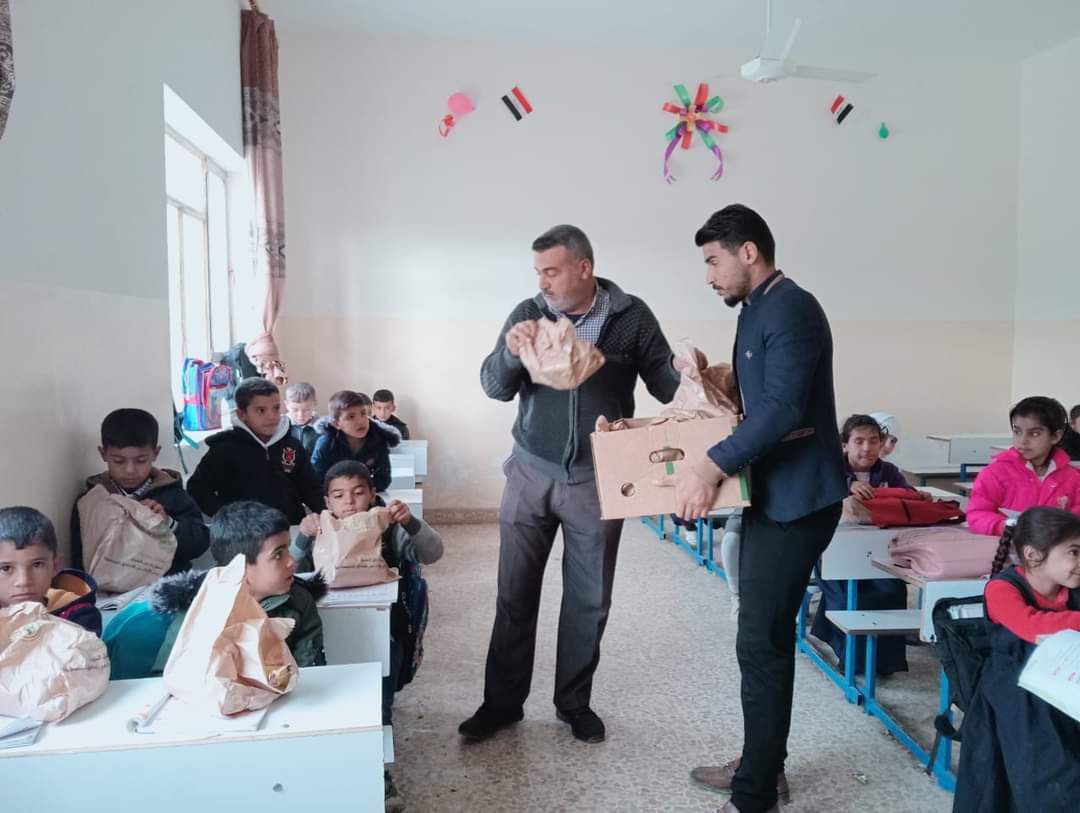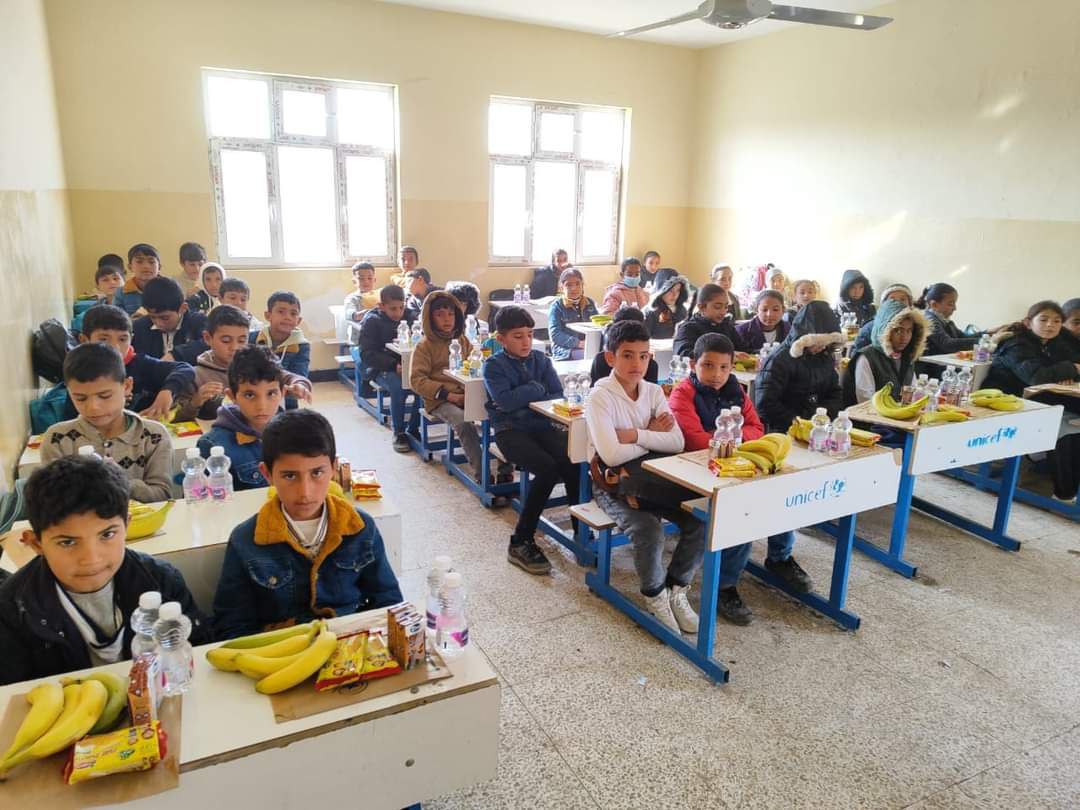Low-income students in Shingal and Ba'aj districts of war-torn Nineveh province are being given biscuits, milk and fruit daily in schools as part of a project of the Ministry of Education that has not yet covered all areas.
Primary school students from the first to the sixth grade has been given two biscuits, two bananas, two packets of milk and two cans of water daily for about a month, only in some schools in Shingal and Ba'aj districts.
“The quality of the snacks is very good and all the children are going back to school happily, so we hope it will continue,” said Obed Haji, a resident of Bork community in Shingal district.
“This is a big reward because many people cannot give their children 250 dinars (USD0.15) a day to spend,” Haji said.
In Shingal alone, more than 170 primary schools will receive the aids. There are about 80,000 students in the district with both Arabic and Kurdish education in primary schools.
Shahab Ahmad, whose daughter attends a school in Tel Banat community of Shingal, told KirkukNow that hundreds of students are deprived of food because their information has not been sent to the education department.
The schools of Kojo, Tel Banat community, Hatmiya and several other areas in Qairawan subdistrict are not receiving the aid.
The district of Shingal, 120 km west of Mosul, the center of Ninewa province, is home to the non-Muslim Ezidi minority heavily targeted by the Islamic State in Iraq and Levant ISIL group in August 2014 and one of the disputed territories between Baghdad and Erbil.
There are more than 600,000 IDPs in the IKR, some of whom are staying in 26 camps, mostly Ezidis and Muslim-Sunni Arabs from Nineveh, according to the KRG figures.

Hassan Salih, director of education in Shingal, told KirkukNow the reason for the deprivation of these schools is that their data have not been sent to the ministry of education and they should prepare from next year so that all students can benefit.
He also explained that after sending any information, a field committee will visit the area, to make sure the poor living conditions of people and students to receive the adis.
"The program is for those people and areas in poor financial situation and need assistance.”
Schools in Shingal were destroyed during the rule of ISIS (2014-2015) and most of them were demolished. All the teachers and students were displaced, but with the recapture of the area and the return of some families, the education process resumed in the district. Many of them are still studying in exile.
“At the end of the second lesson every day, the distribution of food to the students starts. The food is good and it is a good step to help the students,” says Hashim Jalal, a lecturer at a Shingal primary school.
He believes that this step will increase students' love for school, study well and get good grades. "Some students come to school in the morning without eating breakfast because of their poor financial situation, so this assistance will help them.”
According to the Iraqi Ministry of Education, more than 800,000 students in 2,500 schools have benefited from the aid, which aims to reduce absenteeism and support the physical health of students and the livelihood of their families.
In general, state schools in the Shingal district suffer from a lack of buildings, budgets and teaching staff, and part of this problem started when the Iraqi government stopped employment for all sectors including education leaving schools in need of new teachers.
Education like other sectors of life is divided between Baghdad and Erbil as schools sponsored by Baghdad study Arabic curriculum while those funded by the Kurdistan Regional Government KRG are in Kurdish.
According to two official statistics from the Arabic Education of Sinjar and the Iraqi Government Education Representation in Duhok, there are about 80,000 students of Arabic education in Sinjar, which are divided into more than 240 schools, including about 40,000 students and more than 100 schools in Sinjar district and others are displaced in or outside camps for the internally displaced persons IDPs of the IKR.





